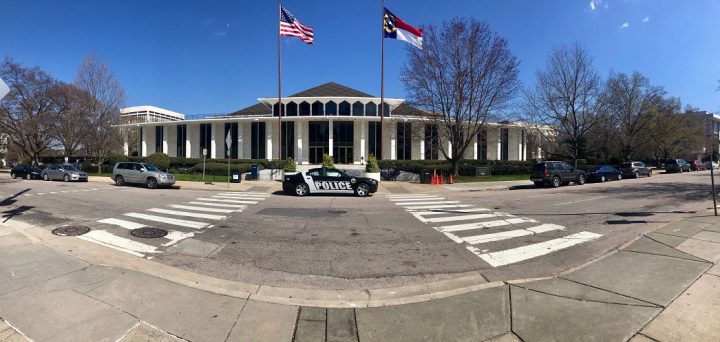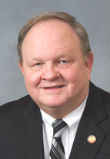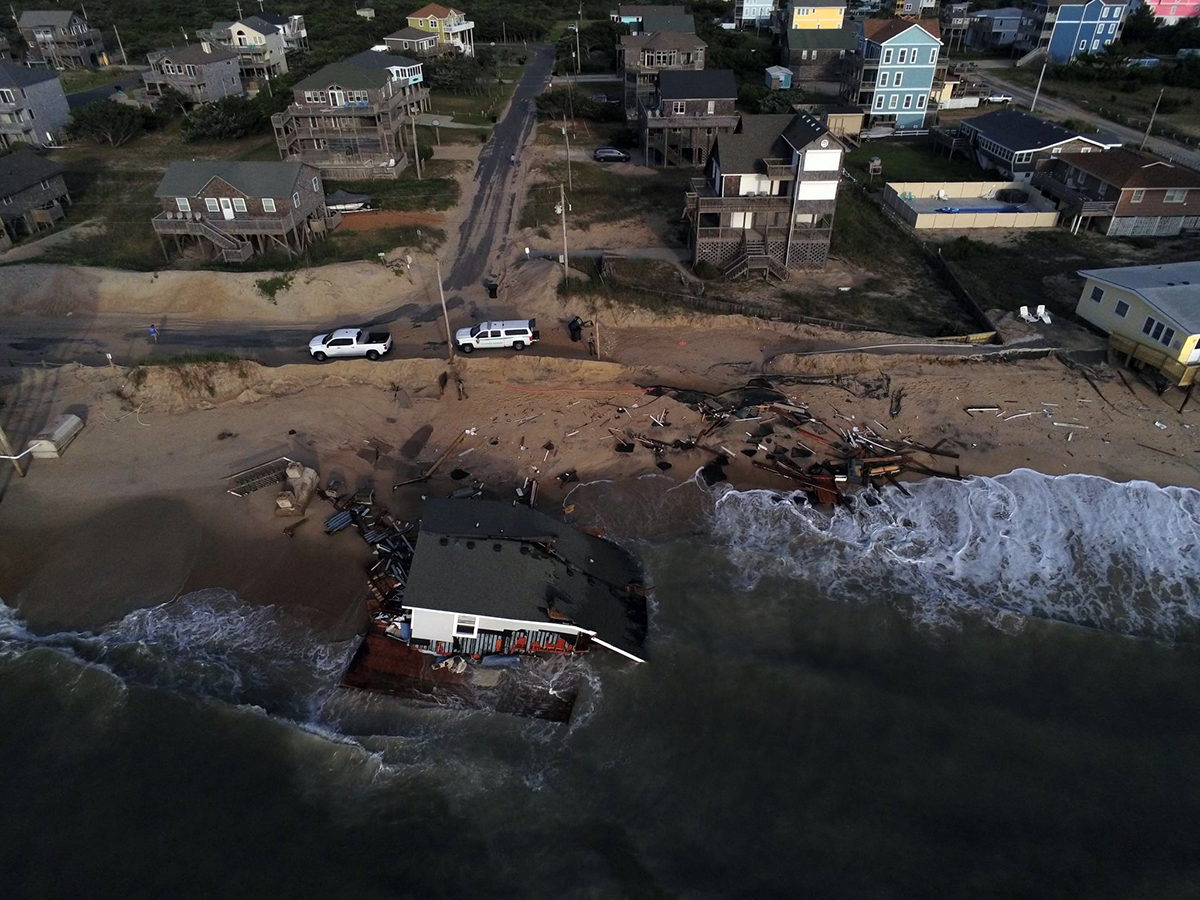
RALEIGH – As the state budget impasse heads into its second month, work on most major bills, including controversial environmental measures, has all but stopped on Jones Street.
On Monday, with a vote to override Gov. Roy Cooper’s June 28 veto of the two-year budget plan again on the calendar, the House again backed off, held a 10-minute session and adjourned for the evening. It marked the 17th time the override vote was delayed, although House Speaker Tim Moore, R-Cleveland, continues to assert that he is close to having the votes to push the through the override.
Supporter Spotlight
Meanwhile, Moore, Cooper and Senate leader Phil Berger, R-Rockingham, appear no closer to a deal, and with the state finances on a kind of autopilot, the impact of protracted impasse is starting to sink in.
Since a state budget wasn’t adopted at the end of the fiscal year on June 30, automatic funding legislation passed in 2016 kicked in and, in most cases, continues to support departments and agencies at current levels. But the legislation doesn’t provide for expansion funds, such as new programs or increases in student enrollments and raises and bonuses for state employees. Because the legislation applies only to recurring appropriations, projects funded in the new budget with nonrecurring funds are on hold until the logjam is broken.

Rep. Chuck McGrady, R-Henderson, one the main budget writers for the House, said that for environmental programs the main impact is a hold on additional funds for supplies and personnel for research and testing of per- and polyfluoroalkyl substances, or PFAS, by the Department of Environmental Quality, along with millions of dollars in nonrecurring funding for the Clean Water Management Trust Fund and the Parks and Recreation Trust Fund.
McGrady said the new funds for studying PFAS and other emerging compounds is a significant step, and along with it is needed funding for major renovations at DEQ’s outdated Reedy Creek complex, headquarters for water and air quality testing.
“While the governor had sought more money, up to now, the legislature hasn’t expanded the testing,” McGrady said Tuesday in an email response to Coastal Review Online. “In this budget, the legislature is finally approving more staff to do the testing. Also, in the capital budget, the complete renovation or rebuild of the testing facility is funded.”
Supporter Spotlight
McGrady, a longtime backer of the state’s conservation funds, said the budget stalemate could have an impact on both trust funds, CWMTF and PARTF.
“Both of these funds have some nonrecurring monies, and those monies are hung up along with expanded funding, particularly in the second year of the budget,” he said.
Rep. Pricey Harrison, D-Guilford, agreed that both the PFAS funding and the conservation funds are significant, but she was also not happy with much of the rest of the budget, including the special provision that delays implementation of DEQ’s new permit rules for large-scale animal feeding operations and a proposed yearlong delay in a report on PFAS contamination by the North Carolina Policy Collaboratory.
Harrison said that’s why she was “not heartbroken” that the budget was vetoed, but she has been disappointed about the lack of negotiations since.

“This is just a ridiculous standoff,” she said. “The parties ought to get together and negotiate. It frustrating to watch.”
Both Moore and Berger have accused the governor of refusing to negotiate on the budget unless they first agree to a Medicaid expansion plan.
Cooper, who offered an alternative budget plan in early July, insists he’s willing to talk about both expansion and other budget items, but that legislative leaders are more focused on an override than a compromise.
In Cooper’s initial budget proposal in February and again after the veto, he called for a much larger increase in DEQ funding than what the legislature ultimately agreed on. His July proposal, which asks for changes in roughly a dozen areas, includes an additional $4.5 million per year for DEQ.
Cooper spokesperson Sharon Martin said Tuesday that the legislature’s budget failed to go far enough on water quality protections and emerging compounds.
“The governor’s budget compromise prioritizes funding for staff, equipment and improvements to facilitate DEQ’s response to PFAS and water quality issues facing North Carolina,” she said.
Other PFAS items on hold without a budget deal is a $500,000 appropriation to replace a public well for the town of Maysville, where firefighting foam is suspected of contaminating the water supply, and a $1.5 million appropriation to the collaboratory as additional funding to complete its statewide PFAS assessment and prepare a report to the legislature.
The budget isn’t the only legislation related to PFAS that is on hold right now.
Harrison said legislation she sees as an important first step in regulation of PFAS and other compounds is likely dead for this year’s session. The measure would ban the use of PFAS and similar compounds in firefighting foam used for training exercises.
Harrison wanted the state to ban the use of the foam outright as other states are considering, but the move was strongly opposed by industry groups. Her attempt to limit the ban to training was also rejected by industry lobbyists. It’s an example, she said, of how difficult it is to regulate emerging compounds.
“I thought for sure at minimum we’d get some limitations on the use for training,” she said Tuesday. “If we really want to do the right thing, we’d take step to limiting the use of that chemical, but we’re not there yet in North Carolina.”
The bill remains eligible for consideration in the short session and Harrison said she would try again next year.
McGrady, who recently announced he would retire from the legislature after this term, said he would also work on trying to get the firefighting foam bill passed in the short session.







